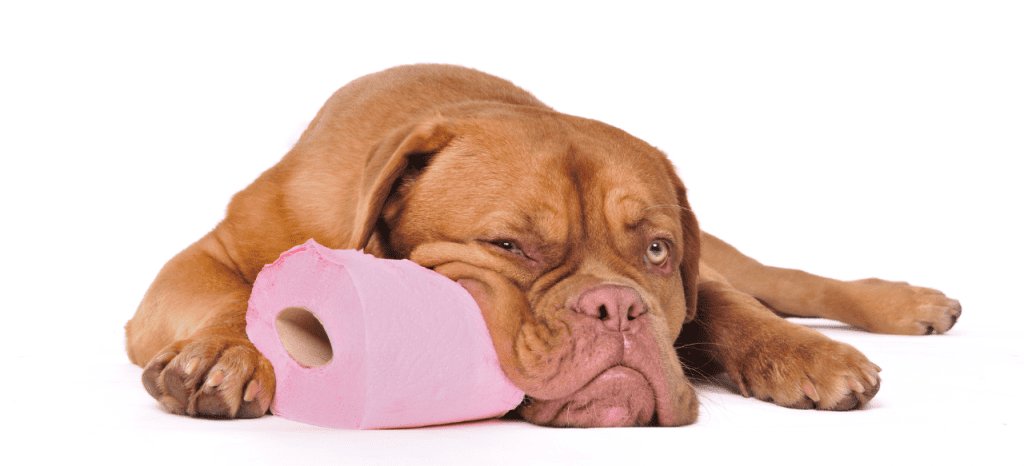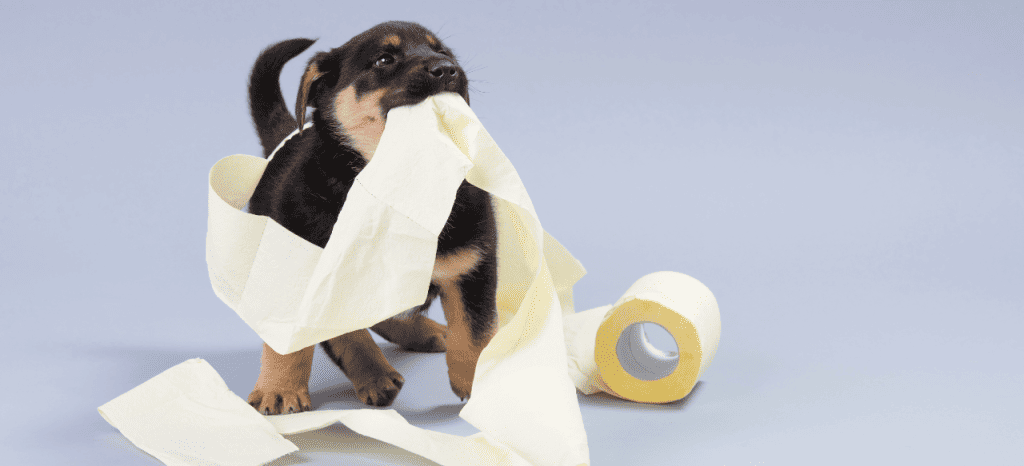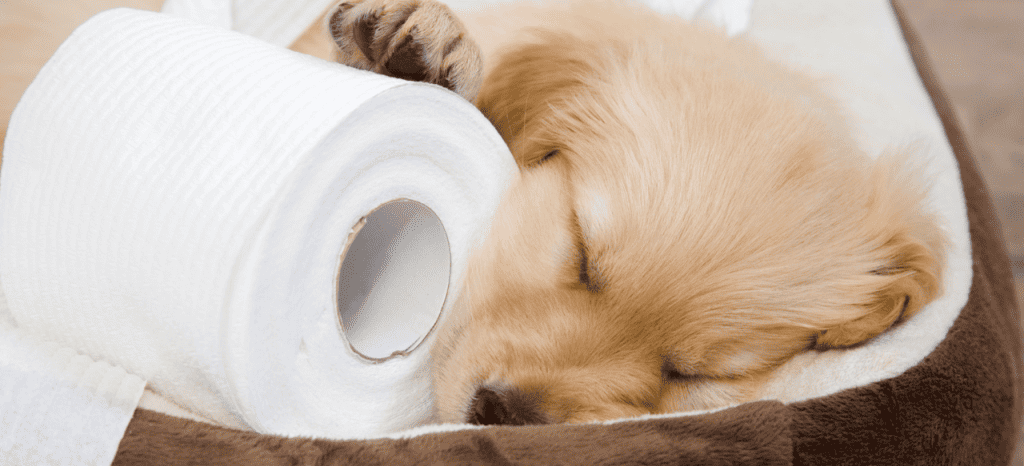If you’ve recently welcomed a furry bundle of joy into your home, you might ask yourself, “Why is my puppy peeing every 5 minutes?” While it can be frustrating and perplexing, it’s essential to understand that frequent urination in puppies is quite common and often quickly resolved. In this article, we’ll explore eight common reasons behind this behavior and provide valuable insights on how to address them.
Age and Bladder Size
Puppies have tiny bladders, and their capacity to hold urine is limited.
When it comes to understanding why puppies tend to pee frequently, it all begins with their anatomical limitations. Puppies are essentially fur-clad bundles of energy and enthusiasm, but their bladders are tiny within those wiggly little bodies. The small size of their bladders means they cannot retain urine for extended periods like adult dogs can.
Imagine a puppy’s bladder as a tiny water balloon – it can only hold a minuscule amount of liquid before it’s packed to the brim. Consequently, it’s natural for a puppy to empty their bladder quite frequently.
Their bladder control is underdeveloped at a very young age, leading to frequent urination.
In addition to their bladder size, another crucial factor contributing to frequent urination is the puppy’s age. When puppies are born, their bladder control is almost non-existent. In the early days and weeks of their life, they can’t even consciously control the release of urine. It’s more of a reflex action than a voluntary one.
As they gradually grow and mature, their neurological and muscular control over their bladder improves, albeit at a varying pace for different puppies. But still, even as they develop this control, they will require more frequent bathroom breaks than adult dogs. This is a crucial part of their learning process, as they understand when and where it’s appropriate to urinate.
Their bladder size will increase as they grow, and this issue should gradually improve.

The silver lining in this tale of tiny bladders and underdeveloped control is that puppies grow – and with growth comes a significant improvement in their bladder capacity and control. Their bladders will increase as they age, allowing them to hold more urine without feeling the urge to relieve themselves quite as often.
This growth process is a biological certainty, and as responsible puppy parents, it’s essential to acknowledge that this phase is temporary. While it may be a challenge in the early stages, the good news is that your puppy’s bladder will grow with each passing month, and their ability to control it will become more refined.
Excitement and Nervousness
Puppies are naturally excitable and easily stimulated, which can trigger frequent urination.
Picture a young puppy as a ball of boundless energy and enthusiasm. Their world comprises new experiences, novel scents, and exciting encounters. Puppies are, by their very nature, exuberant and lively creatures. This vitality can be both endearing and, at times, a source of frustration, especially regarding their urinary habits.
The excitement and joy they feel are so palpable that they can manifest physically – in the form of more frequent urination. Just as an excited child might have difficulty holding still, a puppy may struggle to control their bladder when feeling exuberant. In simple terms, excitement can lead to an increased urgency to urinate.
Excitement or nervousness, especially when meeting new people or animals, can lead to more frequent bathroom breaks.
Puppies are like sponges, soaking up new experiences and learning about the world around them. Meeting new people animals, or even being in unfamiliar environments can be both thrilling and nerve-wracking for a young pup. These novel encounters can evoke emotions, including excitement and nervousness.
It’s crucial to remember that when a puppy feels these intense emotions, their body reacts in various ways, including an increased need to relieve itself. This can happen due to a surge in adrenaline or even just the puppy’s way of coping with the overwhelming sensations they are experiencing.
Socialize your puppy gradually to reduce anxiety.
The solution to this expected puppy behavior is to engage in a process known as socialization. Socialization is a critical aspect of a puppy’s development that involves exposing them to various people, animals, and environments in a controlled and positive manner. This gradual introduction to the outside world helps puppies become more accustomed to different situations and reduces their anxiety and excitement.
By gradually exposing your puppy to new experiences, you can teach them to manage their emotions and excitement more effectively. This, in turn, can reduce the instances of frequent urination when they encounter something new or exhilarating.
Remember, socialization isn’t just about curbing urinary behavior; it’s also essential for raising a well-adjusted and confident dog. Proper socialization can help your puppy grow into a well-behaved adult dog that feels comfortable and relaxed in various situations.
Learning and Training
Puppies require proper training to understand where and when it’s acceptable to relieve themselves.
Housebreaking, also known as potty training, is essential to raising a well-behaved puppy. Unlike adult dogs, puppies are not born with the knowledge of where and when it’s appropriate to go to the bathroom. This understanding must be instilled through training.
From the moment you bring your puppy into your home, you essentially become their teacher in the realm of toilet etiquette. Puppies are incredibly receptive to learning at a young age, and during this formative period, they need guidance to comprehend the rules of their new environment.
They may need a more precise grasp of this concept in the early stages, leading to accidents.
They operate on instinct during the initial stages of a puppy’s life. When they feel the urge to urinate, they’ll do so wherever they happen to be unless they’ve been taught otherwise. This lack of understanding can lead to “accidents” inside your home, as the puppy doesn’t know better.

These accidents can be frustrating for pet parents, but it’s important to remember that it’s a natural part of a puppy’s learning curve. They’re not defiant or disobedient; they’re unaware of the rules and expectations.S
Consistent and patient house training can significantly reduce this behavior.
The key to addressing this common issue is consistent and patient-house training. House training involves scheduling regular bathroom breaks, positive reinforcement, and setting clear expectations for your puppy.
Here are some essential tips for successful house training:
- Establish a routine: Puppies thrive on routine. Take your puppy outside to their designated potty spot at consistent intervals, especially after eating, drinking, playing, or waking up.
- Reward good behavior: When your puppy relieves themselves in the appropriate spot, praise and reward them immediately. This positive reinforcement helps them associate the act with a positive outcome.
- Supervise and prevent accidents: Keep a close eye on your puppy, and use a crate or playpen to limit their access to the house when you can’t supervise them. This prevents accidents and encourages them to hold it until they’re outside.
- Be patient: Understand that accidents will happen, and your puppy is still learning. Avoid scolding or punishing them for accidents, creating fear and anxiety.
- Consistency is key: Stick to the routine and the rules. Over time, your puppy will clearly understand where and when it’s appropriate to go potty.
Health Issues
Frequent urination in a puppy can occasionally signal underlying health issues. While it’s normal for puppies to urinate frequently due to their small bladders and developing bladder control, excessive and persistent urination may indicate a problem.
One of the primary concerns is a urinary tract infection (UTI). UTIs can cause discomfort and an increased urge to urinate. If you notice your puppy exhibiting frequent urination alongside signs of discomfort, such as whining or straining during urination, it’s essential to consult a veterinarian. UTIs are treatable with antibiotics when detected early.
Bladder stones are another potential issue. These hard mineral deposits can obstruct the urinary tract, leading to increased urination, painful urination, and sometimes blood in the urine. If you suspect bladder stones or see unusual signs in your puppy’s urine, it’s crucial to seek professional veterinary care. Treatment may involve dietary changes or, in severe cases, surgical removal of the stones.

Frequent urination can sometimes be a symptom of more significant health concerns, such as diabetes or kidney problems. These conditions may manifest as increased urination and other alarming symptoms like lethargy, excessive thirst, weight loss, or blood in the urine.
Overhydration
Hydration is essential for a puppy’s well-being, just like any living creature. Adequate water intake helps maintain proper bodily functions, temperature regulation, and overall health. However, it’s essential to strike a balance regarding a puppy’s water consumption.
Puppies can be enthusiastic drinkers, often gulping down water eagerly. While providing them with access to clean and fresh water at all times is essential, excessive water consumption can lead to more frequent urination. When a puppy drinks excessively, their tiny bladder may struggle to hold the increased urine volume, resulting in more frequent bathroom breaks.
As a responsible pet owner, monitoring your puppy’s water intake is crucial. This doesn’t mean limiting their access to water, which could lead to dehydration and other health problems. Instead, it involves being mindful of their drinking habits.

Here are some considerations for managing your puppy’s water intake:
- Regularly replenish the water bowl: Ensure the water bowl is consistently filled with clean, fresh water. Puppies may become anxious or stressed if they can’t access water when needed.
- Monitor their drinking patterns: Pay attention to when your puppy drinks. For instance, they may drink more after vigorous play or exercise, and that’s perfectly normal. However, it’s worth watching if you notice excessive and constant drinking.
- Control water availability during specific times: If you’re concerned about your puppy’s water intake causing excessive urination, consider limiting access during the evening, especially before bedtime. This can help reduce the likelihood of nighttime bathroom trips.
- Consult your veterinarian: If you suspect your puppy is consistently overhydrating or their water intake seems abnormal, it’s a good idea to consult your veterinarian. They can provide guidance and rule out any underlying health concerns that may be driving excessive thirst.
Dietary Factors
The nutritional quality of your puppy’s food plays a significant role in their overall health, including their bathroom habits what your puppy eats can have a direct impact on the consistency of their stools and the frequency of urination.
Low-quality or inappropriate diets often contain ingredients that your puppy’s immature digestive system may not be well-digested. This can result in loose stools, which can lead to more frequent trips to the bathroom. In addition, poor-quality ingredients may lack the necessary nutrients to support your puppy’s growth and development, potentially affecting their overall health and well-being.
Feeding your puppy a well-balanced and age-appropriate diet is essential. High-quality puppy food is formulated to provide the right balance of nutrients, including proteins, fats, vitamins, and minerals, to support their growth and energy needs. These diets are designed to be easily digestible, which can help maintain healthy and firm stools while reducing the frequency of bowel movements.
Consulting your veterinarian is crucial when selecting the proper diet for your puppy. Veterinarians can assess your puppy’s needs by considering factors like breed, age, size, and any existing health concerns. They can recommend the most suitable food for your puppy’s current life stage and overall health.
Your veterinarian can also offer guidance on portion sizes and feeding schedules to ensure your puppy receives the appropriate amount of nutrition without overfeeding. This helps maintain a healthy weight and reduces the chances of excessive urination due to overconsumption of water.
Territorial Marking
Puppies have an instinct to mark their territory, which often involves urination. This behavior is not just limited to dogs; many animals, including canines, use scent marking to communicate. Puppies, in particular, may engage in territorial marking to establish boundaries, convey their presence to other animals, and establish a sense of ownership over their environment.
When puppies sense the presence of other dogs or animals in their vicinity, they may feel compelled to mark their territory more frequently. This behavior can increase urination, as they want to leave their scent in various areas to assert their presence.
As puppies mature, their hormonal changes play a significant role in territorial marking. Neutering (for males) and spaying (for females) can help reduce this behavior. Neutering or spaying typically involves the removal of the reproductive organs, which significantly reduces the production of certain hormones, such as testosterone, in males. These hormones are closely linked to territorial marking behavior.
Neutering and spaying can help reduce the frequency and intensity of territorial marking as puppies grow into adults. It’s essential to consult your veterinarian to determine the appropriate age and timing for these procedures, as the ideal time may vary depending on your puppy’s breed and individual characteristics.
Excitement to Explore
Puppies are like little explorers in a big, exciting world. Their innate curiosity drives them to investigate and discover their surroundings. This sense of wonder is an integral part of their development and helps them learn about the environment they inhabit.
When exposed to new places or intriguing scents, puppies may become even more eager to explore. This heightened curiosity and excitement can, in turn, trigger a desire to urinate more frequently. Just as human children might become distracted by a fascinating new toy or experience, puppies may find it challenging to focus on controlling their bladder when their senses are overwhelmed by novel stimuli.
To help your puppy adjust to these situations, gradual and controlled introductions to new environments are essential. Here’s how you can facilitate this adjustment:
- Start with familiar surroundings: Familiarize your puppy with their primary living space and gradually expand their horizons. This approach allows them to establish a sense of familiarity and comfort in their immediate environment.
- Introduce new places progressively: As your puppy becomes more accustomed to their home, slowly introduce them to new places. These can include local parks, friends’ homes, or other areas where they can explore and encounter different scents and surroundings.
- Use a leash for control: When taking your puppy to new places, keep them on a leash. This allows you to have better control over their movements and encourages them to stay close to you.
- Frequent bathroom breaks: Offer your puppy regular opportunities to go potty during these outings. Be patient and understanding; they might need extra time to adjust to the new environment.
- Positive reinforcement: Praise and reward your puppy when they exhibit good behavior, such as urinating in the designated spot. This positive feedback helps them understand what is expected in various environments.
Conclusion
Puppies peeing every 5 minutes can be challenging, but it’s usually a phase that can be managed with patience, training, and understanding. By considering the factors mentioned in this article, you can identify the root cause of the issue and take appropriate steps to address it. Raising a puppy is a journey; with time and effort, your little one will grow into a well-behaved, house-trained companion.


